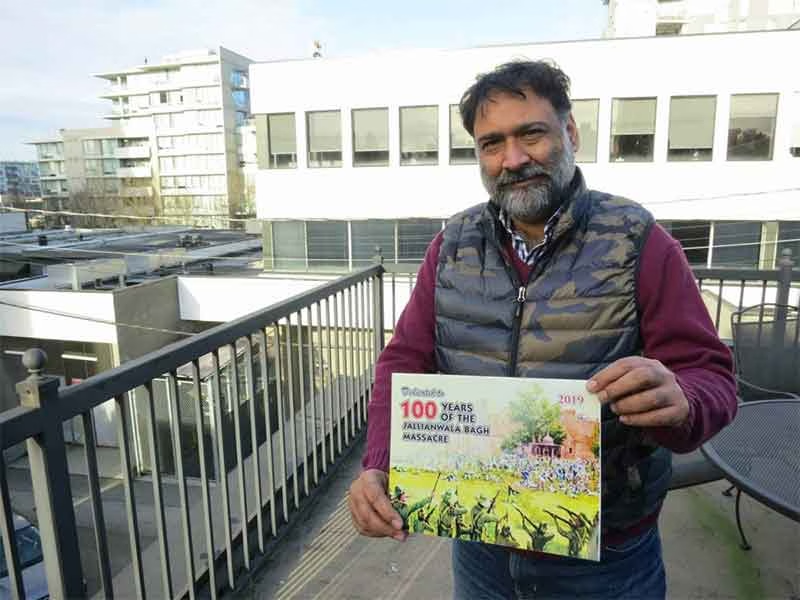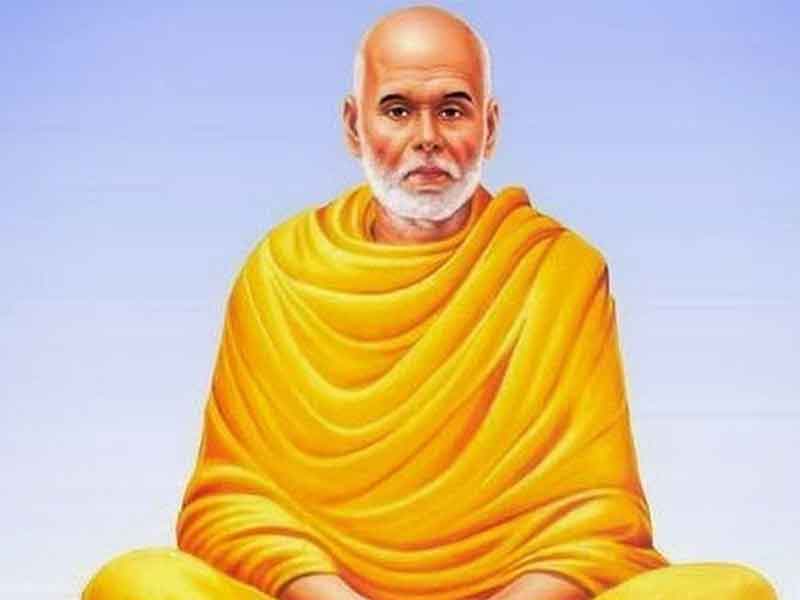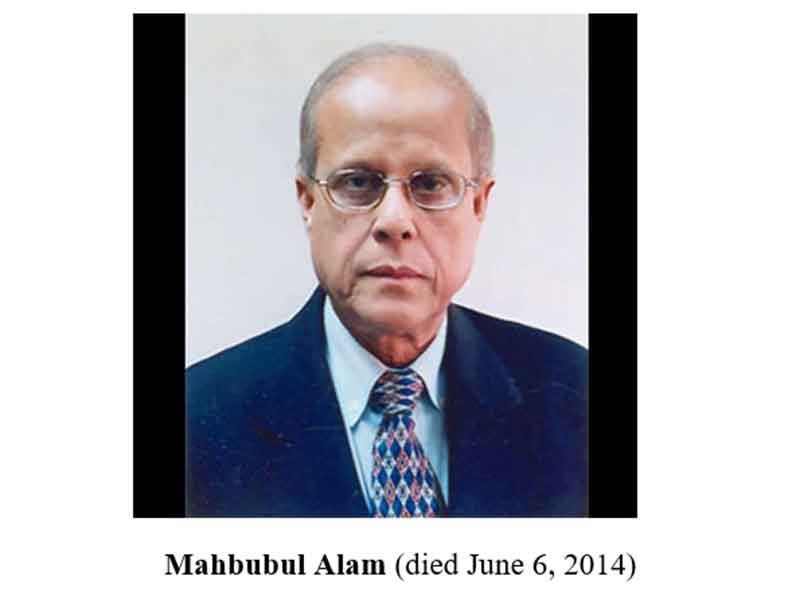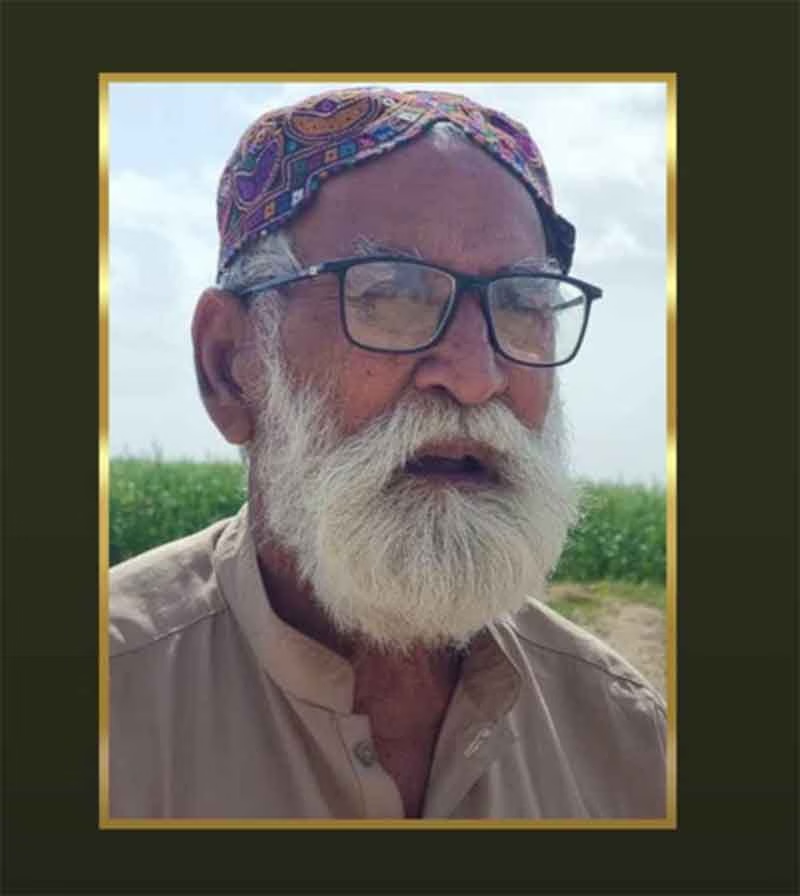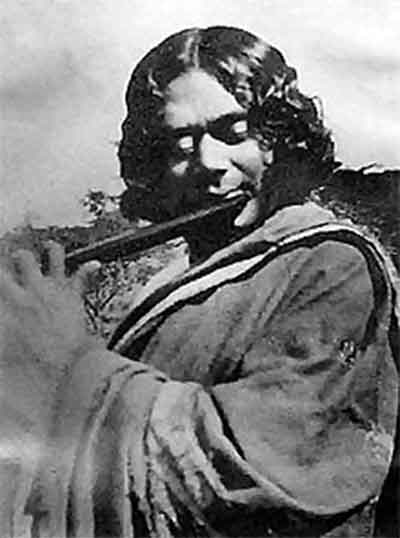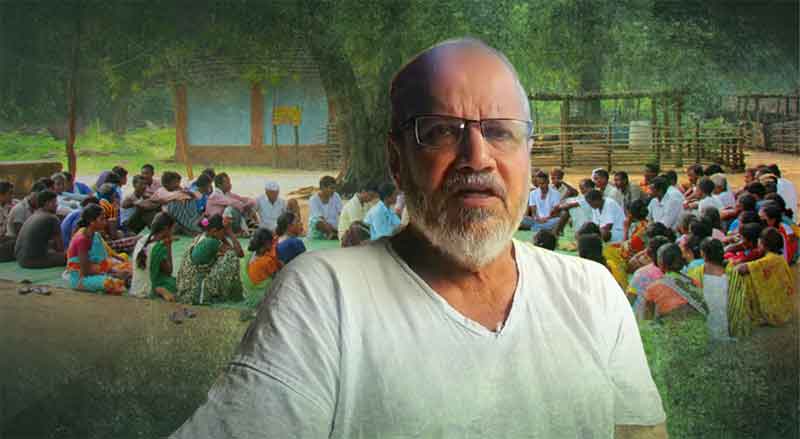
In the bustling capitals of Delhi and Mumbai, governance is centralized. However, in the tribal village of Mendha-Lekha in Maharashtra’s Gadchiroli district, the declaration “In our village, we ourselves are the government” is not merely a slogan—it is a lived reality. This philosophy embodies the political consciousness and democratic spirit that have guided the Gond tribal community’s journey toward self-determination. At the forefront of this movement was Mohan Hirabhai Hiralal, a social activist who played a crucial role in the village’s pursuit of self-governance. Until his passing on January 23, 2025, he was instrumental in the “Our Village – We Are the Government” campaign.
A Lifelong Commitment to People’s Power
An active member of Jayaprakash Narayan’s Chhatra Yuva Sangharsh Wahini and a staunch advocate of Gandhian and Vinoba Bhave’s concepts of Janashakti (people’s power), Hiralal began his work in 1984 by founding ‘Vrikshamitra’ in Gadchiroli. His search for practical models of Gram Swaraj led him to Mendha-Lekha, where he encountered the village’s unique consensus democracy model. Recognizing its transformative potential, he chose it as his field of study and actively contributed to its evolution.
Under his guidance, ‘Vrikshamitra’ facilitated democratic experiments, focusing on women’s participation, abstinence, forest conservation, forest rights, anti-corruption measures, cultural rights, youth empowerment, sustainability, and equity. This concerted effort resulted in Mendha-Lekha and Marda villages securing community forest rights in 2009 under the Forest Rights Act of 2006. His contributions were recognized in 2016 when he received the Jamnalal Bajaj Award for Constructive Work.
Devaji Tofa and Mohan Hirabhai Hiralal: A Transformative Partnership
Located 30 kilometers from the Gadchiroli district headquarters, Mendha-Lekha stands apart from the surrounding ‘Naxal-affected’ areas by embracing peace and non-violence. Long before Hiralal’s arrival, Devaji Tofa, an undisputed leader of the village, had initiated self-governance practices in 1987. Tofa, deeply connected to the 1,800-hectare forest surrounding the village, was a charismatic speaker and organizer who led his community with unwavering commitment to non-violent resistance and tribal rights.
The synergy between Hiralal and Tofa transformed Mendha-Lekha into a global example of participatory democracy. Once wary of outsiders in trousers and shirts, the villagers grew into a confident community that drew worldwide attention for their unwavering spirit and innovative governance model.
Consensus Democracy and Gram Swaraj
Mendha-Lekha operates through Consensus Democracy, a system that challenges traditional representative democracy by placing power in the hands of the village assembly. Unlike majority-rule systems, decisions are made through extensive discussions until a consensus is reached, ensuring no minority voices are disregarded. This approach fosters mutual trust and inclusivity, embodying Gandhi’s vision of Gram Swaraj (village self-rule).
Since 1988, Mendha-Lekha has exclusively used consensus-based decision-making, with all senior villagers participating in the Gram Sabha. The village, where 80% of the land is forested, comprises fewer than 100 families, making full participation feasible. The Study Circle, an additional committee open to outsiders, gathers knowledge on critical subjects but does not wield decision-making power. Through these discussions, the villagers gained clarity on democracy, governance, and sustainable development. Their commitment to environmental preservation led them to impose fines for illegal tree cutting, setting an example for the entire nation.
The Fight for Forest Rights
For centuries, tribal communities have depended on forests for their livelihood, a right recognized in the Nistar Rights Declaration of 1950. However, bureaucratic interference from the Forest and Revenue Departments often curtailed these rights. Mendha-Lekha challenged this injustice through meticulous study and activism, ultimately securing their community’s autonomy over forest resources. Today, no government agency can undertake any project in the village without the Gram Sabha’s approval. Their approach mirrors the spirit of the Chipko movement—resisting external exploitation while embracing peace and sustainability.
One of their most notable struggles was against exploitative bamboo-cutting contracts. In 1991, when the government renewed an agreement allowing paper mills to harvest bamboo at minimal cost, the Gram Sabha opposed it. They petitioned the Chief Minister, requesting the rights to manage their own bamboo resources. When their plea was ignored, they launched a Chipko-style protest. For three years, the government and the paper company attempted to suppress their resistance, but the village remained steadfast. Eventually, the government conceded, granting joint forest management rights and ensuring that bamboo sales would be negotiated on the villagers’ terms.
Mendha-Lekha made history as the first Indian village to exercise forest rights under the Forest Rights Act (2006). In a symbolic moment, then-Union Minister of Environment and Forests, Jairam Ramesh, handed over the first transit pass to Devaji Tofa, declaring, “Today, bamboo is free.” This victory underscored the triumph of grassroots democracy over bureaucratic control.
Direct Control Over Development Funds
Despite the government allocating significant funds for tribal development, corruption siphoned off much of it. Recognizing this, the Gram Sabha demanded direct control over their funds. The government initially resisted, arguing that only Gram Panchayats—not Gram Sabhas—were legal entities. The villagers countered by studying NGO registration processes and decided to formalize their governance structure as the ‘Mendha-Lekha Planning and Development Council.’
Operating under the framework of the Gram Sabha, this council took charge of all development activities. It convened monthly on full moon days at noon, ensuring transparency and collective decision-making. Government authorities had no choice but to acknowledge this model, allowing funds to flow directly to the village. This radical step eliminated intermediaries and empowered the community to oversee its own progress.
The Global Relevance of Mendha-Lekha
Mendha-Lekha’s success is partially attributable to its tribal culture, small population, and close-knit social structure. However, its principles—community-led governance, decentralized decision-making, resistance to bureaucratic dominance, and environmental stewardship—offer valuable lessons for the world. In an era of increasing centralization, market-driven policies, and socio-economic inequalities, the village’s model challenges the limitations of modern governance.
Consensus democracy, as practiced in Mendha-Lekha, ensures that minorities are never overlooked and that decision-making fosters strong human relationships through dialogue. By prioritizing collective well-being over personal gain, the village presents an alternative to hierarchical power structures and political nepotism. It is a testament to how everyday discourse can bridge social divides and foster a truly participatory democracy.
In an age marked by environmental crises and deepening inequalities, Mendha-Lekha stands as a beacon of sustainable and justice-driven governance. The concepts of degrowth, interdependence, and decentralized resource management gain new meaning in the light of their achievements. As the world grapples with the limitations of existing systems, Mendha-Lekha provides a hopeful paradigm for the future—one where people reclaim agency over their lives and communities.
Subscribe to Our Newsletter
Get the latest CounterCurrents updates delivered straight to your inbox.
Guided by the leadership of Devaji Tofa and the unwavering commitment of Mohan Hirabhai Hiralal, this village has redefined what it means to be truly free. Mendha-Lekha is not just a village—it is a movement, a philosophy, and a living example of self-determination in action.
A K Shiburaj is an independent journalist
Originally published in Keraleeyam Masika

